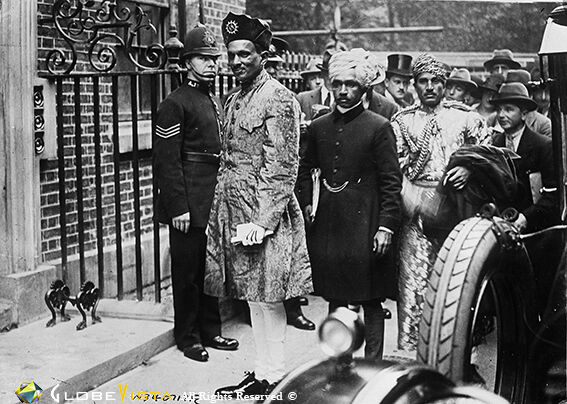Ok, lets first explain what a Sheriffs Elect is, in context of the photograph below. In England, there are two sheriffs of the City of London. These sheriffs really don’t have much to do, because, let’s face it, they only have to cover a square mile of the City of London. But prior to being elected, they had to have been involved heavily in the judicial responsibilities of the city.

London confers the ancient and honorable title of Sheriff on two of its worthies.
London, England 16th October 1927 – The two men just admitted to the ancient and honorable office of Sheriff of the City of London, a dignified ranking just below that of the office of Lord Mayor of the City. From left to right, Sheriff-elect Davenport and Sheriff-elect Green in robes of Office and carrying their cocked hats, on their arrival at the Guildhall.
Historically the title of Sheriff dates back to the Anglo Saxon period of England when the sheriff (then known as shire reeve) was acting on the behalf of the King to collect taxes and enforce the law in villages, towns and shires. During the Norman Conquest in 1066, the City of London had two sheriffs who were considered rather important, considering it was their role to collect London’s taxes on behalf of the royal exchequer. They were also required to take on judicial roles in the City’s law courts. Up until 1130 the sheriffs were appointed directly by the king but that all changed in the 12th century when the City of London was given the right to choose their own sheriffs. It later became, in 1385, tradition that every future Lord Mayor of London had to have previously been a sheriff. Penance I guess!
Today, on Midsummer’s Day (September/November) every year in Guildhall two Sheriffs are elected by the City livery companies. Their duties include helping the Lord Mayor in carrying out his official duties, attending the sessions at the Central Criminal Court in the Old Bailey and presenting petitions from the City to Parliament at the Bar at the House of Commons.
